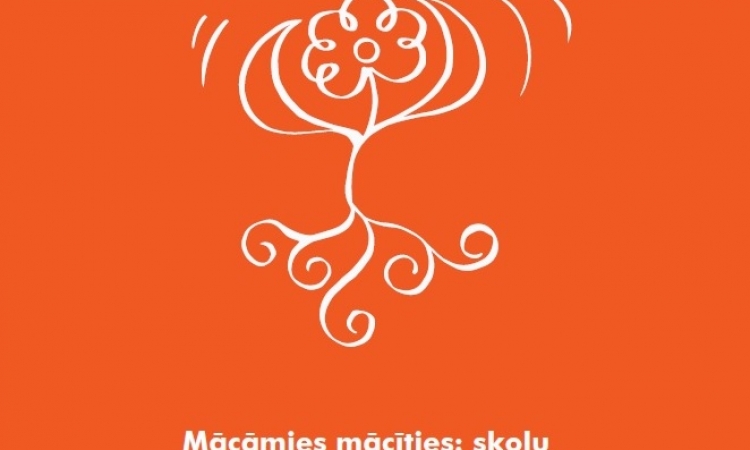MOBILISING COMMUNITY ACTION: FOR CITIZENSHIP, AGAINST POVERTY
The Grassroots Europe for Local Wellbeing is the second Project that takes place in Latvia, uniting 18 societies where "The Wings of Hope" organization plays the coordinator and applicant role. Coming from the small but picturesque town of Sigulda, "The Wings of Hope" offers its experience in the grassroots movement both – to the already established colleagues and cooperation partners and the newcomers, who have just started their activities. Eva Vilkina speaks about her impressions and possibilities to share her knowledge no only on the role of small NGOs, but also on the emotionally burdensome work with handicapped kids. More

Due to various economic and demographic reasons as well as the high divorce rate the activists trying to solve the everyday life problems in Latvia are mainly female. Prevalently middle-aged women organize themselves, call together people of all ages and "worry" the local government people in order to make life better. Hence the only young, judicious and assured man, who participates in the grassroots activities of local, regional and national level, attracts interest. Rolands Keišs (RK) sees nothing strange in the situation, to be more exact, it's natural to him that men are the most active members of the local society, as he comes from a very small village at the Eastern border of the EU – Baltinava. More
In the end of July (2013) the Latvian grassroots activists came together for their Summer school to exchange their experience in network making skills they have done and improved lately. They also had to find an answer to one question: How would you explain to an interested foreigner, why small rural communities are a social risk group in Latvia? More
Education Development Center (EDC) is proud to take active part in the Grassroots Europe Initiative project “MOBILISING COMMUNITY ACTION: FOR CITIZENSHIP, AGAINST POVERTY” (2013). The project is implemented with support from the Education Support Program (ESP) of the Open Society Foundations and Europe for Citizens program of the European Union.
The initiative seeks to support European community-based educational grassroots organizations that are able to mobilize their communities and public opinion around issues of marginalization in education and help the most vulnerable groups of society.
The project gives European citizens active in the field of education and social inclusion the opportunity to interact among themselves, with policy-makers, civil society organizations at the local, national and EU level. At the local level it pursues a community-based, participatory approach and involves a diverse array of educational grassroots organizations that work towards promoting soft factors for local development (culture, creativity, and innovation of citizens) and fostering local wellbeing through formal and informal education.
This project is developed and implemented through the cooperation of a number of partner organizations, coming from 8 countries, namely: Albania, Germany, Croatia, Austria, Italy, Hungary, Latvia and Romania. The project sees community level civic activism and the bringing of local voices in EU level policy debates as a transnational challenge within the EU, one that can benefit from comparing different national points of view, by giving the floor directly to persons from different national backgrounds.
WHY GRASSROOTS?
In today’s Europe, there is an urgent need for holistic approach to community development and cross-sectorial efforts to efficiently tackle vulnerable groups’ most burning problems. Building on the role of grassroots organizations in reaching out to the most vulnerable segments of society, the project engages European citizens, practitioners from different sectors and actors from various policy areas as well as local community members to empower them to engage in dialogue with local stakeholders, mobilize communities to fight poverty, build up solidarity of mainstream society and work towards efficient cross-sectorial approaches.
We work with grassroots organizations because:
• community level organizations are the best placed to reach out and represent the most
vulnerable groups of societies, those that are most at risk of marginalization and social exclusion,
• grassroots organizations are instrumental in developing specialized holistic strategies supporting children’s performance in school, the development of social competences, life skills and fostering inclusion in their communities with a series of creative interventions at the interface of formal and informal education,
• the voice and knowledge of grassroots organizations are relatively marginalized thus it is crucial to support their joint efforts and facilitate their communication with policy makers.
LEAD PARTNER
Education Support Program, Open Society Foundations l Hungary
PROJECT PARTNERS
Agency for Interculture and Mobility, Italy
Center for Social and Integration Projects, Austria
Children Are the Future, Albania
Education Development Center, Latvia
Forum for Freedom in Education, Croatia
LIFE e.V., Germany
Public Policy Centre, Romania
Vitakultśra Association, Hungary
PROJECT WEBSITE
